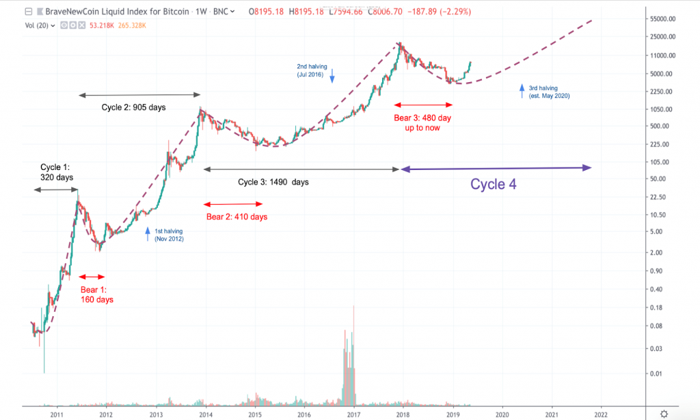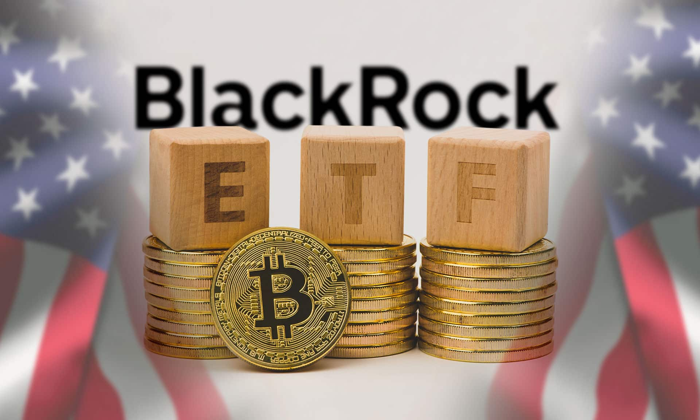In light of the evolving landscape of digital assets, the SEC Crypto Guidance takes center stage as the U.S. Securities and Exchange Commission reevaluates its past directives. Acting chairman Mark Uyeda announced a comprehensive review of key documents affecting bitcoin futures regulation, digital asset investment contracts, and crypto custody frameworks. This reassessment aims to align the SEC’s regulations with contemporary realities, potentially leading to new regulatory frameworks for digital assets. By addressing these critical areas, the SEC hopes to relieve some of the regulatory pressure currently stifling innovation within the industry. As the agency embarks on this significant crypto review, stakeholders eagerly await further clarification that could reshape the future of digital asset investments.
As the regulatory environment around cryptocurrencies shifts, the U.S. Securities and Exchange Commission (SEC) is taking a fresh look at its previously established crypto guidelines. This examination comes as the SEC seeks to streamline its oversight of elements such as bitcoin futures trading, investment contracts for digital assets, and the frameworks surrounding crypto asset custody. With a focus on updating existing regulations, the agency is poised to introduce new structures that reflect the realities of digital currencies. This initiative signifies a potential turning point in how regulatory bodies will manage digital currencies and their associated investment opportunities. As the SEC delves deeper into these matters, clarity and direction for digital asset investors are on the horizon.
Reevaluating SEC Crypto Guidance for 2025
The U.S. Securities and Exchange Commission (SEC) is embarking on a significant reassessment of its crypto guidance, signaling a potential shift in regulatory approach amidst a backdrop of evolving market conditions. Acting Chairman Mark Uyeda’s recent announcement highlights the agency’s commitment to aligning its directives with contemporary priorities, particularly as they relate to bitcoin futures regulation. This reassessment could present an opportunity for the SEC to establish a regulatory framework that not only supports innovation in the digital assets sector but also safeguards investor interests.
The potential ramifications of the SEC’s review on digital asset investment contracts are noteworthy. By critically analyzing past guidance, the agency aims to ensure that its stance on various digital asset classes remains relevant and effective. This includes clarifying existing rules regarding the custody of crypto assets, which is crucial for enhancing confidence among institutional and retail investors alike. Such a thorough review process may pave the way for more robust and coherent regulatory frameworks that promote sustainable growth within the cryptocurrency market.
Impact on Bitcoin Futures Regulation
Bitcoin futures regulation has taken center stage as the SEC considers revising its previous guidance. The evolving legal landscape surrounding bitcoin futures contracts has raised questions about how these financial instruments should be treated under current U.S. laws. The SEC’s reassessment could signal a favorable move towards a more defined regulatory environment, allowing institutional players to engage more freely in the cryptocurrency futures market. This increased clarity is vital for fostering innovation and ensuring that financial institutions can develop robust risk management strategies.
As the SEC undertakes this review, it must balance the need for regulation with the demands of a rapidly innovating digital asset environment. Properly structured guidance on bitcoin futures can not only protect investors but also encourage the participation of traditional financial firms in the crypto space. This balance is integral for maintaining market integrity and promoting healthy competition, ultimately benefiting both consumers and the wider financial ecosystem.
The Future of Digital Asset Investment Contracts
The SEC’s examination of digital asset investment contracts is a critical facet of its broader review strategy. As more companies look to tokenize assets or create investment vehicles linked to digital currencies, regulatory clarity on these contracts becomes increasingly paramount. Firms operating in this space require guidance to navigate complex legal landscapes, and without clear standards, the sector remains vulnerable to regulatory risks. The SEC’s reassessment therefore holds the potential to create a more favorable environment for innovation while establishing necessary safeguards for investors.
By clearly defining which digital asset investment contracts fall under SEC jurisdiction, the agency can help streamline market participation. This is particularly important for startups and smaller enterprises that may lack the resources to navigate ambiguous regulations. As the SEC looks to redefine its policies, the emphasis on developing a comprehensive understanding of investment contracts could lead to more responsible and transparent innovation in the digital asset space.
Updating Crypto Custody Frameworks
In the wake of recent market changes, the SEC’s review of crypto custody frameworks signifies a step towards protecting both retail and institutional investors. Custody of digital assets remains a critical concern, especially with the increasing instances of security breaches and market manipulation. By providing more defined guidance on how cryptocurrency custody should be handled, the SEC can help establish a trustworthy ecosystem that encourages investor confidence and participation in the growing crypto market.
Furthermore, updating the custody frameworks will be instrumental in determining how traditional financial institutions can engage with digital assets. As banks and financial service providers increasingly offer cryptocurrency-related services, well-structured custody regulations are essential for ensuring compliance and minimizing risks. The SEC’s initiative to clarify these frameworks could ultimately facilitate a more seamless integration of digital assets into conventional financial systems, promoting broader adoption and innovation.
The Importance of Regulatory Frameworks for Digital Assets
Regulatory frameworks for digital assets are essential to the maturation of the cryptocurrency sector. The SEC’s current reassessment of its guidance reflects a recognition of the need for comprehensive regulations that address the unique challenges posed by digital currencies. Establishing clear rules can foster greater trust in the market, allowing for the effective protection of investors while simultaneously encouraging innovation across the industry.
As the SEC explores new regulatory avenues, it is crucial to involve stakeholders including industry participants, consumer advocates, and policymakers. This collaborative approach will ensure that the resulting frameworks are practical, transparent, and adequately address the risks associated with digital assets. By developing a strong regulatory foundation, the SEC can pave the way for sustainable growth in the crypto market, ultimately benefitting all participants involved.
Exploring the SEC Crypto Review Process
The SEC’s crypto review process has garnered significant attention as it seeks to reevaluate existing guidance in light of the evolving digital landscape. This process represents a critical juncture for the agency, which is tasked with the delicate balancing act of regulating a dynamic and rapidly changing market. Understanding the methodologies and considerations that underpin the SEC’s crypto review will be essential for industry participants as they prepare for potential changes in the regulatory environment.
Moreover, the review process not only impacts compliance but also shapes the innovation landscape within the cryptocurrency sector. By openly communicating its intentions and the rationale behind its evaluations, the SEC can foster trust within the industry and assure stakeholders that it is taking proactive measures to create a fair and equitable marketplace. As this review unfolds, it is imperative for market players to stay informed and engaged with any developments that may arise.
Navigating New Developments in Cryptocurrency Regulation
The landscape of cryptocurrency regulation is constantly evolving, and the SEC’s current initiatives reflect heightened interest in fostering a supportive environment for digital assets. Navigating these developments requires market participants to stay abreast of changes in SEC guidance, especially as they pertain to compliance and operational protocols. Given the turbulent nature of the market, understanding regulatory shifts and their implications can yield significant advantages for firms that operate in this space.
As the SEC continues its review process, businesses must prepare to adapt to potential regulatory changes and consider how they might affect existing operations. Building flexibility into compliance strategies will be critical as organizations seek to align with the SEC’s evolving standards. The proactive participation of industry stakeholders is essential to ensure that the resulting regulations not only protect investors but also stimulate growth and innovation within the cryptocurrency sector.
Encouraging Innovation Amid Regulatory Oversight
Amidst increasing regulatory scrutiny, the SEC’s reassessment of its past crypto guidance opens the door for innovative solutions in the digital asset space. By recognizing the diverse uses of blockchain technology and digital currencies, the SEC can create a framework that encourages experimentation while safeguarding against risks. Encouraging innovation is essential, as it drives the development of new financial products and services that can enhance market efficiency and expand access for a broader population.
It is crucial for regulators to strike the right balance between oversight and innovation. A well-structured regulatory environment can facilitate the entrance of new players into the market, fostering competition while ensuring that established companies adhere to the necessary standards. This proactive approach can create an atmosphere where innovation thrives, ultimately benefiting consumers by providing them with more options and improved services.
The SEC’s Broader Strategy for Digital Asset Regulation
The SEC’s broader strategy for navigating digital asset regulation encompasses not only the reassessment of its guidance but also its long-term vision for the sector’s evolution. By integrating insights from various stakeholders and considering emerging trends in the market, the SEC can develop a comprehensive approach that addresses both current challenges and anticipated developments in the cryptocurrency landscape. This strategic foresight is essential to fostering a resilient digital assets ecosystem.
Additionally, the SEC’s emphasis on innovation alongside regulation underscores the critical role that digital assets will play in the future of finance. By carefully crafting frameworks that provide clarity and flexibility, the SEC can support the growth of a sector that promises new opportunities and avenues for investment. A balanced and forward-thinking approach will ultimately shape the trajectory of cryptocurrency and its integration into traditional financial systems.
Frequently Asked Questions
What is the SEC’s stance on bitcoin futures regulation under current guidance?
The SEC is currently reassessing prior guidance on bitcoin futures regulation to ensure it aligns with present priorities. As part of this process, key documents regarding the Investment Company Act’s regulations on bitcoin futures investments are being reviewed, signaling a potential shift towards clearer regulatory frameworks.
How does the review of digital asset investment contracts impact investors?
The SEC’s review of digital asset investment contracts aims to clarify existing uncertainties in the regulation of these assets. This reassessment could lead to more defined regulatory frameworks, offering better protection and guidance for investors engaged in digital asset markets.
What changes might occur in SEC crypto review processes following the reassessment?
The SEC’s ongoing review may result in significant changes to its crypto review processes, potentially simplifying compliance for digital asset businesses. By aligning regulations with current market realities, this reassessment supports a more favorable environment for growth and innovation in the crypto sector.
What are crypto custody frameworks, and how are they affected by SEC guidance?
Crypto custody frameworks refer to the regulations governing the safeguarding of digital assets by custodians. The SEC’s review of past guidance, especially concerning custody frameworks, indicates a possible evolution in how these frameworks will be structured, aiming to enhance security and regulatory compliance for custodians.
How could new regulatory frameworks for digital assets emerge from the SEC’s guidance review?
The review of existing SEC crypto guidance is expected to lead to the development of new regulatory frameworks addressing digital assets. These frameworks may provide clarity on compliance requirements for digital asset businesses, potentially easing the regulatory burden and fostering an environment conducive to innovation.
| Key Point | Details |
|---|---|
| SEC Review | The SEC is reassessing past crypto guidance to ensure it aligns with current priorities. |
| Key Documents Under Review | Documents include guidelines for bitcoin futures, digital asset investment contracts, and custody frameworks. |
| Purpose of Review | To potentially ease regulatory pressure and clarify frameworks for the digital assets sector. |
| Acting Chairman | Mark Uyeda is spearheading the review related to Executive Order 14192 on deregulation. |
| Implications of Review | The review might lead to new regulatory frameworks, easing the agency’s past aggressive stance. |
| Significance of Review | The effort could result in clarifications that may reshape how digital assets are regulated. |
| Current Agency Leadership | The review comes after changes in the SEC’s leadership, aimed at reducing enforcement against digital asset businesses. |
Summary
The SEC Crypto Guidance is undergoing significant reassessment as the agency strives to update its regulatory approach towards digital assets. This initiative, led by acting chairman Mark Uyeda, aims to ensure that past guidelines accurately reflect current market needs and regulatory trends. As the SEC evaluates critical documents such as those pertaining to bitcoin futures and investment contracts, it signals a possible shift towards a more favorable landscape for cryptocurrency businesses. This open-door approach suggests the SEC is considering easing prior regulations, which may foster growth and innovation in the digital asset sector moving forward.
The recent developments surrounding SEC Crypto Guidance highlight a pivotal moment for the cryptocurrency landscape in the United States. As the Securities and Exchange Commission initiates a comprehensive review of existing regulations, its focus on key provisions such as bitcoin futures regulation and digital asset investment contracts is becoming increasingly crucial. Acting chairman Mark Uyeda’s call to reassess these guidelines aims to create more coherent regulatory frameworks for digital assets, alleviating tensions within the rapidly evolving market. By streamlining crypto custody frameworks, the SEC is poised to provide clearer directions that could foster greater trust and investment in this innovative sector. Such changes represent a significant shift in the SEC’s stance, potentially laying the groundwork for a more supportive environment for digital assets and their investors.
In light of the recent reassessment of cryptocurrency regulations, industry stakeholders are paying close attention to the SEC’s evolving framework. The agency’s review of crypto-related guidance, including those concerning future contracts for bitcoin and investment contracts for digital assets, marks a significant turning point. With a focus on establishing more robust regulatory structures, the aim is to reduce uncertainty that has surrounded the digital asset market. Such a transformation in the SEC’s approach could pave the way for enhanced custody solutions and clearer compliance measures, ensuring that both crypto businesses and investors can navigate this dynamic landscape confidently. This initiative underscores a broader commitment to adapt regulatory practices that cater to innovation while safeguarding market integrity.














